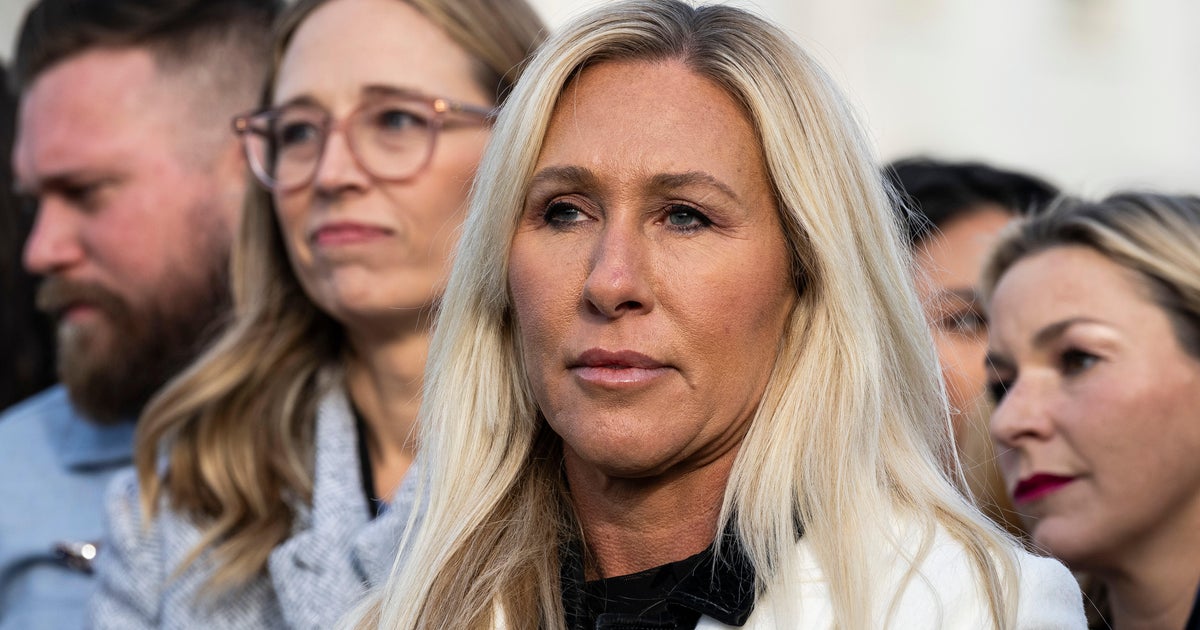Managing Emotions If Your Mother's Day Is Spent In Mourning
(CBSDFW.COM) - The Mother's Day advertising blitz has arrived right on cue -- less than subtle reminders to buy that gift, order those flowers or perhaps make a reservation for brunch. But for many what's needed is a plan -- to manage the range of emotions if say, you're struggling to become a mom, have lost a child, have a fractured relationship with your mother or when you're left mourning the best one in the world: your own.
"Whether you are going through a holiday or not, your grief doesn't take a holiday, your grief doesn't ever take a vacation, it's always there," says Larry Barber, MA, LPC-S, and an associate at Taylor Counseling Group. Barber adds that an ad can be a trigger, a memory or just about anything at all -- at any time. "That's what I call 'grief ambushes.' They come out of nowhere, you're suddenly overtaken with sadness -- and you're going: where did that come from?"
Even when you think that you're doing okay.
"We are all perpetual grievers... indefinitely and there is no limit," says Rev. Regina Franklin-Basye, grief specialist and Fellow in Thanatology: Death, Dying & Bereavement. "There is no expiration date for our grief."
I can't quite remember how I first met the soothing spirit now known to friends and associates as "Rev. Regina." But her mission was unforgettable: launching a foundation that she ran for more than a decade to honor her late mother, while supporting others through their grief journey. I profiled her foundation in 2013. Checking in many years later, I found her still grieving, still serving, still reassuring others that it's "okay, to not be okay."
Franklin-Basye says the 18th anniversary of her mother's death will fall, this year, on Mother's Day. The approaching high school graduation of her daughter as well, she says, adds to the rush of emotions. Her mother was in the process of moving to North Texas to care for her new granddaughter when she died.
"We have to be intentional in acknowledging whatever emotion surfaces," says Franklin-Basye. "I encourage people to write and to purchase a journal... praying through their grief... get a friend to be present with you in those moments, lighting a candle... whatever emotion surfaces, honor that and step into that."
Other experts agree, and encourage those struggling with the loss of a mother especially this week, to get an "emotional tool kit," ready in advance.
"Remember these three things," advises Barber, "1. The dread of the day is worse than the actual day itself. 2. Have a plan, and if the plan doesn't work in the middle of it, then just go to plan b. Don't beat yourself up, and the third... do something special in honor of the person."
Barber, also the author of the grief survival guide "Love Never Dies: Embracing Grief with Hope and Promise," says in his experience, often men, especially, will need to be coaxed into acknowledging the ongoing impact of grief. But those conversations, he says, will help them heal.
"You'll be surprised, they really don't hold back on emotions when they start talking about their mother and what she meant to them, you just have to give them permission to do that."
That's also good advice for friends left feeling awkward in the face of a peer's grief -- not knowing what to say or fearing saying the wrong thing.
"Invite them to talk about them and to be transparent in what they're feeling. We're all storytellers. 'hey tell me some stories'," encourages Franklin-Basye. "So, if we continue telling the stories of their lives and how they impacted us-- that's a part of the healing process."
Experts say they are often asked when does grief become a concern that can't be handled alone. Barber advises seeking professional help when feeling "stuck," and managing the grief isn't getting any easier. Another flag is if the grief continues to be all-consuming and impacts the ability to handle work and family responsibilities.
But beyond that, the resounding advice is to take the waves of grief as they come, knowing they will likely occur with less frequency, and on the difficult days focus more on "getting through," rather than "getting over."
"We learn to accept life without their physical presence," says Franklin-Basye, "I don't believe we will ever get over losing that foundational relationship."







